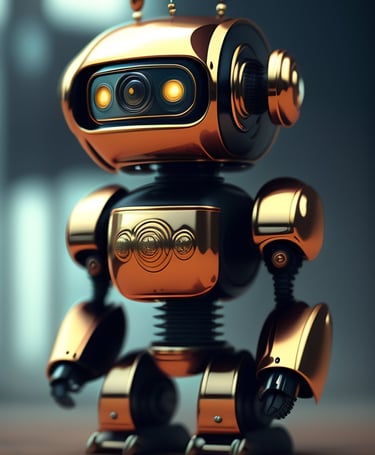Exploring AI and Chat GPT in Software Testing | Software Testing Trends
Uncover the benefits of AI, from increased efficiency to enhanced defect detection, and understand how Chat GPT revolutionizes test scenario generation and bug tracking. Stay ahead of the curve with these cutting-edge technologies.
TECH
Anil
7/10/2023


Introduction:
In the ever-evolving world of software testing, staying up-to-date with the latest trends and technologies is crucial. Artificial Intelligence (AI) has made significant advancements in recent years, revolutionizing various industries, and software testing is no exception. This blog post delves into the role of AI and Chat GPT (Generative Pre-trained Transformer) in software testing, exploring their benefits, applications, and their impact on current testing trends.
Understanding AI in Software Testing:
Artificial Intelligence has transformed the landscape of software testing by enabling faster, more efficient and accurate testing processes. With AI-powered tools, testers can automate repetitive tasks, improve test coverage, and identify potential defects with greater precision. Machine learning algorithms can analyze vast amounts of data to identify patterns, predict potential issues, and enhance the overall quality of software products.
Benefits of AI in Software Testing:
Increased Test Efficiency: AI-powered tools can automate mundane and repetitive testing tasks, freeing up testers' time to focus on more critical aspects of testing. This results in faster test execution and improved overall efficiency.
Improved Test Coverage: AI algorithms can analyze large volumes of test data and generate comprehensive test scenarios that cover a wide range of potential user interactions. This helps identify potential defects that may have been overlooked in traditional testing approaches.
Enhanced Defect Detection: AI can detect anomalies and potential defects by analyzing patterns and comparing them against expected behaviors. This allows testers to identify hidden issues and improve the overall quality of the software.
Chat GPT in Software Testing:
Chat GPT, a variant of AI, utilizes natural language processing (NLP) capabilities to understand and generate human-like text responses. In software testing, Chat GPT can play a valuable role in several areas:
Test Scenario Generation: Chat GPT can generate test scenarios based on user queries or requirements. Testers can interact with the system through conversational interfaces, allowing them to simulate real-world user interactions and generate relevant test cases.
Test Result Analysis: Chat GPT can analyze test results and provide insights in a conversational manner. Testers can interact with the system to understand the test outcomes, identify potential issues, and obtain recommendations for further actions.
Bug Reporting and Tracking: Chat GPT can assist in bug reporting and tracking by allowing testers to describe defects in natural language. The system can then generate structured bug reports and track their progress throughout the software development lifecycle.
Impact on Software Testing Trends:
The integration of AI and Chat GPT in software testing has brought about several notable trends:
Test Automation: AI-powered tools have accelerated the adoption of test automation, enabling organizations to achieve faster releases and higher product quality.
Shift-Left Testing: AI and Chat GPT have facilitated early defect detection and prevention, encouraging a shift-left testing approach. This ensures that defects are identified and resolved at the earliest stages of the software development lifecycle.
Improved Collaboration: Chat GPT promotes collaboration between testers, developers, and stakeholders. Its conversational interface facilitates effective communication, enables faster issue resolution, and enhances overall team productivity.
Conclusion:
AI and Chat GPT have significantly impacted the field of software testing, revolutionizing traditional testing approaches and driving new trends. The integration of AI has led to increased test efficiency, improved test coverage, and enhanced defect detection. Meanwhile, Chat GPT has facilitated conversational interactions, enabling testers to generate test scenarios, analyze results, and track defects effectively. By embracing these technologies, organizations can stay ahead of the curve in an ever-evolving software testing landscape, ensuring the delivery of high-quality software products.
©2023- 2025 Techieleo Digital Services Pvt. Ltd. All rights reserved.
